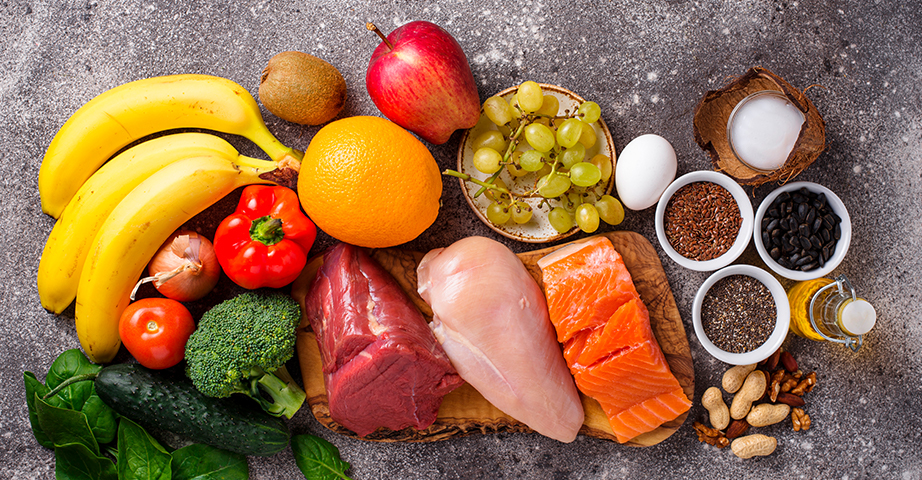What to eat after training? Proteins, sugars and fats in post workout meals

Post-workout meals are crucial to achieve the desired effects of training. The breakdown of muscle proteins and the use of glycogen stores during physical activity require the right nutrition to balance the losses and enable the body to regenerate. What to eat after strength training, endurance training or weight loss? How much protein and carbohydrates should my post-workout meal contain?
What to eat after training - why is a post-workout meal important?
During physical activity, no matter whether strength or endurance, the body experiences processes that make a post-workout meal a necessity. Muscles use glycogen (reserve sugar) as an energy source during exercise. A partial breakdown also takes place. Depending on the type of physical activity, the consumption of glycogen and breakdown of muscle proteins is different, so the needs of a runner and a bodybuilder are slightly different.
What to eat after training? Carbohydrates and protein. The post-workout meal is designed to provide carbohydrates, which the body will use to regenerate glycogen, and protein, to rebuild muscle proteins used as an energy source and suffering from micro-damage.
Eating after training:
- reduces muscle protein breakdown,
- accelerates synthesis of new muscle proteins,
- rebuilds glycogen,
- enhances the recovery process after exercise.
Post-workout meals - how should they be composed?
When arranging post-workout meals, you need to pay attention to several factors. Firstly, what type of activity is the post-workout meal followed by. Secondly, whether it is a component of a weight loss, weight maintenance or weight gain diet. Thirdly, if it is eaten just before bedtime.
Post-workout meals should be eaten approximately 30-60 minutes after training. About 30 minutes after the end of physical activity, protein resynthesis begins. Glycogen resynthesis in muscles is 150% faster in the first two hours after training. However, it is important to know that the strict keeping to this short time for a post-workout meal applies mainly to professional and advanced athletes or people who exercise more than once every 24 hours. In such cases, the rate of regeneration is crucial. For others, it is not so essential, as the regeneration of muscle proteins and glycogen will take place anyway, but a little bit slower.
Post-workout meals should include both protein and carbohydrates. Scientific studies have shown that taking these macronutrients together in a post-workout meal maximises the effects of resynthesis of both muscle proteins and glycogen. Moreover, insulin secretion, which stimulates glycogen synthesis, is better when carbohydrates are provided together with proteins.
Protein win a post-workout meal should be eaten at a rate of 0.3-0.5 g per kilogram of body weight, and carbohydrates should be consumed in the amount of 1-1.5 g/kg of body weight.
Fat has marginal importance in post-workout meals. It should not be the main component of the dish, because, in large quantities, it visibly slows down digestion, while the meal should be digested quickly. However, fat does not have to be avoided. Studies show that even meals providing up to 45% of energy from fat do not negatively affect glycogen synthesis after training.
Recommended products
What to eat after endurance training?
Endurance training, such as long running, cycling or long-distance swimming, uses much more glycogen than strength training. Therefore, you should focus on the number of carbohydrates. How much carbohydrate should I eat after endurance training? The recommended amount is 1.2-1.5 g/kg body weight. Simultaneously, the breakdown of muscle proteins is not as intensive as during weightlifting, but you can't forget to provide them as well. Muscle breakdown also occurs as a result of endurance training. The longer the training, the more intensive the breakdown of proteins. The meal after endurance training should contain 0.3 g protein/kg body weight. Protein and carbohydrates should be eaten in a ratio of 1:4.
Regeneration occurs faster if carbohydrates are easily digested - they have a high or medium glycaemic load. This is why shakes with a banana or other fruits are so popular as post-workout meals. Carbohydrates with a high and medium glycemic load include not only fruit but also white bread, white rice, overcooked pasta, small groats such as semolina, millet and rice cereal. It is not necessary to drink only a shake or to eat an extra meal after training. The post-workout meal can just as well be lunch or dinner. So, what to eat after endurance training?
- Ready-made gainer with milk.
- Shake made of milk, banana, a tablespoon of peanut butter, cocoa and a teaspoon of honey.
- Russian dumplings.
- Wheat rolls with homemade nutella.
- Spaghetti bolognese (100 g meat for 100 g pasta).
What to eat after strength training?
Strength training is characterised by a much more intense breakdown of muscle proteins and less glycogen consumption due to lower mobility and calorie consumption. Consequently, compared to eating after endurance training, strength athletes should eat more protein and slightly fewer carbohydrates. The recommended amount of protein in the meal after strength training is 0.4-0.5 g/kg body weight. The necessary amount of carbohydrates is usually 1 g/kg body weight. Carbohydrates with a medium or high glycaemic load are also better for recovery here. Protein and carbohydrates in the post-workout meal should be eaten in the ratio of 1:3.
What to eat after strength training?
- Protein supplement with milk and banana.
- Natural skyr with fruit and rice cereal.
- Wheat rolls with hummus and roast turkey breast.
- Dumplings with meat.
- Chicken with vegetables in a tortilla.

Post-workout meal on a weight loss diet
On a weight loss diet, the post-workout meal is often missed, especially if the workout takes place in the evening. Many people think that since they want to lose weight, they don't have to worry about supplementing the body's losses through exercise. Unfortunately, they are wrong, because as glycogen stores will be restocked during the day, an insufficient amount of protein after training especially during calorie deficiency (and calorie deficiency is the basis of a weight loss diet) results in increased muscle breakdown and flabbiness over time.
On a weight loss diet, a post-workout meal must be included in the daily calorie limit. It can be a side dish that slightly increases calories on training days or one of the regular meals, such as a second breakfast or dinner. The rules for eating a post-workout meal on a weight loss diet are similar to those for strength training. The crucial factor is protein, which not only supports the development of muscle mass but also facilitates weight loss for many reasons. The amount of protein in the post-workout meal during weight loss should be high - 0.5 g/kg of body weight. Be careful with carbohydrates, as they make weight loss more difficult, but they are essential with physical activity. With endurance training, you can eat 1 g of carbohydrates per kg of body weight and slightly less with strength training.
A post-workout meal is always necessary, even when exercise takes place in the evening, after supper. The starvation period until the next morning meal is too long, resulting in an increased breakdown of muscle proteins and lower glycogen stores. This, in turn, is responsible for lower performance during the next workout.
What to eat after training - a list of products
CARBOHYDRATES: potatoes, white rice, white lightly cooked pasta, white bread, toasted bread, rice wafers, rice cereal, semolina, millet groats, barley groats, quinoa, chocolate milk, fruit
PROTEIN: protein supplements, Greek yoghurt, Skyr yoghurt, cottage cheese, quark, eggs, meat, fish, protein bars
FAT: nuts, peanut butter, seeds, avocado
